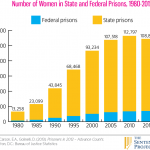Your ongoing relationship with your patient makes you the ideal person to monitor substance use and refer to specialty treatment as needed.
Could collaborative documentation be the next big—and effective—thing in behavioral healthcare?
Transparency is also expected from our health care providers. It’s what’s behind patient listservs and organizations that work to connect patients with each other and make health information accessible. Some say sharing session notes with patients improves the treatment of substance use disorders.
Hookah Use Growing Among Young Adults, Harms Underestimated
Hookah, after years of hiding in dark and smoky corners, is about to get pulled into the crossfire between two formidable forces: big tobacco and big government. Risks, regulation, and popular images of smoking waterpipes.
We can’t ignore the social aspects of substance use, addiction and treatment
Neuroscientist and social critic Carl Hart brings attention to the need for interventions that better address social environments.
Let’s be sensitive to the messages we hear about pills
Distributing candy pills at a behavioral health conference was a marketing faux pas. We can use it to spark change that will save lives.
How to find treatment in Allegheny County
If you need help with substance use, would you know who to call? What about finding help for a loved one? Here are practical ways to connect with drug and alcohol services.
Why do we talk about a “Drug Czar?”
“Drug czar” is a colloquial term for the Director of the Office of National Drug Control Policy (ONDCP), a position in the Obama administration. There are a lot of cooks in this particular kitchen, which makes the ONDCP’s job complicated.
Infographic: Benzodiazepine Use and Medication-Assisted Treatment
Here at IRETA, we’ve been thinking about patient safety in medication-assisted treatment for a number of years, and have more recently zeroed in on the issue of benzodiazepine use among methadone and buprenorphine patients. Patient education about benzodiazepines is key.
Tips for Enhancing a Brief Intervention: Talking about sleep, nutrition, stress and anger
It’s one thing to receive training in the evidence-based practice of Screening, Brief Intervention and Referral to Treatment (SBIRT) and quite another to actually do SBIRT. IRETA offers a spring webinar series on Motivational Interviewing techniques.
Women Have Been Particularly Affected by the War on Drugs, Part II
How can we use what we know about women and the War on Drugs to create real drug policy reform? This is part 2 of “Women Have Been Particularly Affected by the War on Drugs.”










